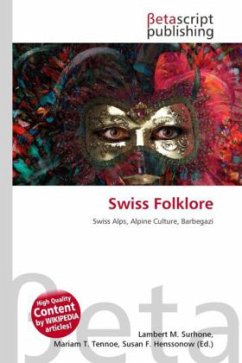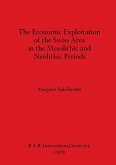Please note that the content of this book primarily consists of articles available from Wikipedia or other free sources online. Swiss folklore is used to describe a collection of local stories, celebrations and customs of the alpine and sub-alpine peoples that occupy Switzerland. The country of Switzerland is made up of several distinct cultures including German, French, Italian as well as the Romansh speaking population of Graubünden. Each group brought their own folklore traditions with them. Switzerland has always occupied a crossroads of Europe. While Switzerland has existed as an alliance and country since 1291, the Swiss as a culture and people existed well before this time. Before the Swiss, the region was occupied by Pagan and later Christian Germanic tribes which would become the Swiss. Before the Germanic peoples, the region was occupied by Roman and Gallo-Roman populations. Finally, before the Romans the Celtic Helvetii lived in what would become Switzerland. In addition to conquest, Switzerland has been a crossroad of Europe since at least the Roman Empire. Constant movement of cultures and ideas into Switzerland has created a rich and varied folklore tradition.
Bitte wählen Sie Ihr Anliegen aus.
Rechnungen
Retourenschein anfordern
Bestellstatus
Storno








